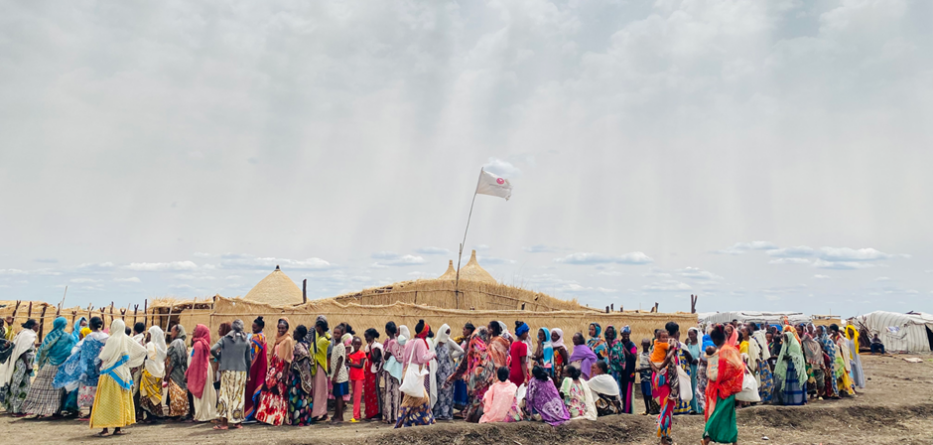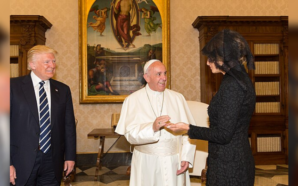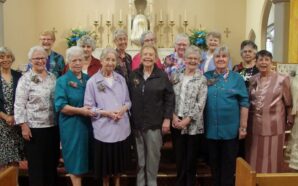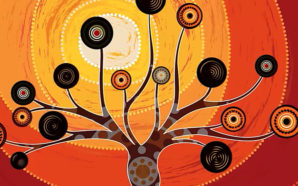Homily for the 25th Sunday in Ordinary Time, Year A, and 109th World Day of Migrants and Refugees 2023
Readings: Isaiah 55:6-9; Psalm 145; Philemon 1:2-24,27; Matthew 20:1-16a
24 September 2023
Today’s gospel is the well-known story Jesus tells about the landowner who goes out at dawn and hires workers for the day promising them a just wage of one denarius a day. Then during the course of the day, he employs other workers undertaking to pay them what is fair.
When I was a university student, I occasionally spent an afternoon inserting advertising supplements in newspapers. At the end of the day, those who had spent all day at the newspaper plant would be paid first and they would receive a full day’s pay. Then those of us who came only for the afternoon shift would be paid half that amount, or even less on account of our age. The system was fair, and it was only appropriate that those who worked all day would be paid first and free to go.
So Jesus’ story has always slightly jarred with me. It was one thing for the landowner to be generous, giving everyone a denarius no matter how long they had worked. But why rub salt in the wound of those who had worked all day and pay the latecomers first so that those who worked all day would realise that though they had been paid the agreed wage, others had received far more favourable treatment?
The story is structured so that the landowner might be able to say to people like me:
‘My friend, I am not cheating you.
Did you not agree with me for the usual daily wage?
Take what is yours and go.
What if I wish to give this last one the same as you?
Or am I not free to do as I wish with my own money?
Are you envious because I am generous?’
Then comes Jesus’ declaration: ‘Thus, the last will be first, and the first will be last.’ God’s grace is showered upon all of us equally regardless of our labours and achievements. And this means that the Lord has a preference for those who come last, for those who are excluded, for those who are marginalised.
Listen at https://soundcloud.com/frank-brennan-6/homily-24923
Today is the World Day of Migrants and Refugees – those who so often come last, being excluded and marginalised in our world constituted by fortified developed nation-states and porous poor countries unable to provide security and prosperity for their citizens. As is customary, the pope has published a message setting out the ideal of a borderless world in which everyone has equal access to all that is needed for human flourishing. This year, Pope Francis has taken up the theme ‘Free to leave, free to stay’ which was a pastoral initiative of the Italian bishops trying to educate and lead Italian citizens to be more receptive to people fleeing situations on the African continent and arriving by boat crossing the Mediterranean. Addressing the twin challenges of improving the situation in countries from which people flee and of enhancing the welcome offered by countries of refuge, Pope Francis insists: ‘The decision to migrate should always be free’[1]. Aware of the interrelated complexities, Francis says, ‘Migrants flee because of poverty, fear or desperation. Eliminating these causes and thus putting an end to forced migration calls for shared commitment on the part of all, in accordance with the responsibilities of each.’ Thus, ‘We need to make every effort to halt the arms race, economic colonialism, the plundering of other people’s resources and the devastation of our common home.’
Becoming even more abstract and idealistic, Francis urges: ‘To make migration a choice that is truly free, efforts must be made to ensure to everyone an equal share in the common good, respect for his or her fundamental rights, and access to an integral human development.’
Moving his focus from the countries from which people flee to the countries to which people flee (including Australia), Francis says: ‘we are called to show maximum respect for the dignity of each migrant; this entails accompanying and managing waves of migration as best we can, constructing bridges and not walls, expanding channels for a safe and regular migration. In whatever place we decide to build our future, in the country of our birth or elsewhere, the important thing is that there always be a community ready to welcome, protect, promote and integrate everyone, without distinctions and without excluding anyone.’
It’s fair to say that the new Albanese government has taken some worthwhile steps to make Australia a more welcoming country for migrants and asylum seekers. The Pacific solution has been almost abandoned. And most proven refugees can now find a path to permanent settlement, even if they came by boat without a visa. However, Labor, like the Coalition, are insistent that the boats will remain stopped and, if need be, turned back. The basic presumption is that asylum seekers seeking access to Australia by boat are not in direct flight from persecution unable to avail themselves of protection somewhere closer to home. Rather they are risking long perilous journeys by sea in the hope of obtaining a more benign migration outcome.
Andrew Giles, the Minister for Immigration, Citizenship and Multicultural Affairs, had a proven track record in the migration field before coming into Parliament. But even he insists that we need ‘to deliver a humanitarian program that demonstrates a government that knows that we can be tough on borders, without being weak on humanity’.[2] No party is electable in modern-day Australia without having a proven commitment to secure borders and an orderly migration program ensuring that the government maintains control of who enters the country gaining the prospect of permanent residence and citizenship. Those of us heeding the annual papal appeal to a more idealistic migration policy need to concede that we are the beneficiaries of secure borders and a government-controlled migration policy, and that we are powerless to change it.
How then are we to respond to the papal appeal? We can continue to press our government and our political parties to be more generous with a migration program providing more spaces for humanitarian cases. This year for the first time since COVID, the government has filled our annual humanitarian quota of 18,000 places. Next year the quota will increase to 20,000. The minister says, ‘This is the largest planned Program since Labor was last in Government a decade ago, and a big step towards our aspirations of 27,000.’ Thank God for this increased generosity in our name.
A welcome initiative taken by the Morrison government and extended by the Albanese government is the Community Refugee Integration and Settlement Pilot (CRISP). This program allows community groups of five or more persons to come together and provide assistance to those refugees who come to Australia without family connections here and on the recommendation of UNHCR. Minister Giles announced this month: ‘The Government is committed to ensuring that Australia steps up and plays its part in addressing the global humanitarian crisis, including by increasing community sponsored and other complementary places gradually to 10,000 over time and making this additional to our humanitarian intake.’[3] Now that is a practical initiative that could make a real difference. It’s the sort of initiative which parishes and other church groups could take up, responding to the vision espoused by Pope Francis. Our bordered world will still be imperfect with more walls than bridges but it can be rendered just that much more hospitable, one step at a time.
Let’s pray with Pope Francis:
God, Father Almighty,
grant us the grace to work tirelessly
for justice, solidarity and peace,
so that all your children may enjoy
the freedom to choose whether to migrate or to stay.
Grant us the courage to denounce
all the horrors of our world,
and to combat every injustice
that mars the beauty of your children
and the harmony of our common home.
Sustain us by the power of your Spirit,
so that we can reflect your tender love
to every migrant whom you place in our path,
and to spread in hearts and in every situation
the culture of encounter and of care.
Fr Frank Brennan SJ is the Rector of Newman College, Melbourne, and the former CEO of Catholic Social Services Australia (CSSA). Fr Frank’s latest book is An Indigenous Voice to Parliament: Considering a Constitutional Bridge, Garratt Publishing, 2023.
[1] Pope Francis, Message for the 109th World Day of Migrants and Refugees 2023, available at https://www.vatican.va/content/francesco/en/messages/migration/documents/20230511-world-migrants-day-2023.html
[2] Andrew Giles, 19 September 2023, available at https://minister.homeaffairs.gov.au/AndrewGiles/Pages/communities-step-up-to-welcome-refugees.aspx
[3] Andrew Giles, 21 September 2023, available at https://minister.homeaffairs.gov.au/AndrewGiles/Pages/refugee-communities-assoc-aust-conf-21092023.aspx








